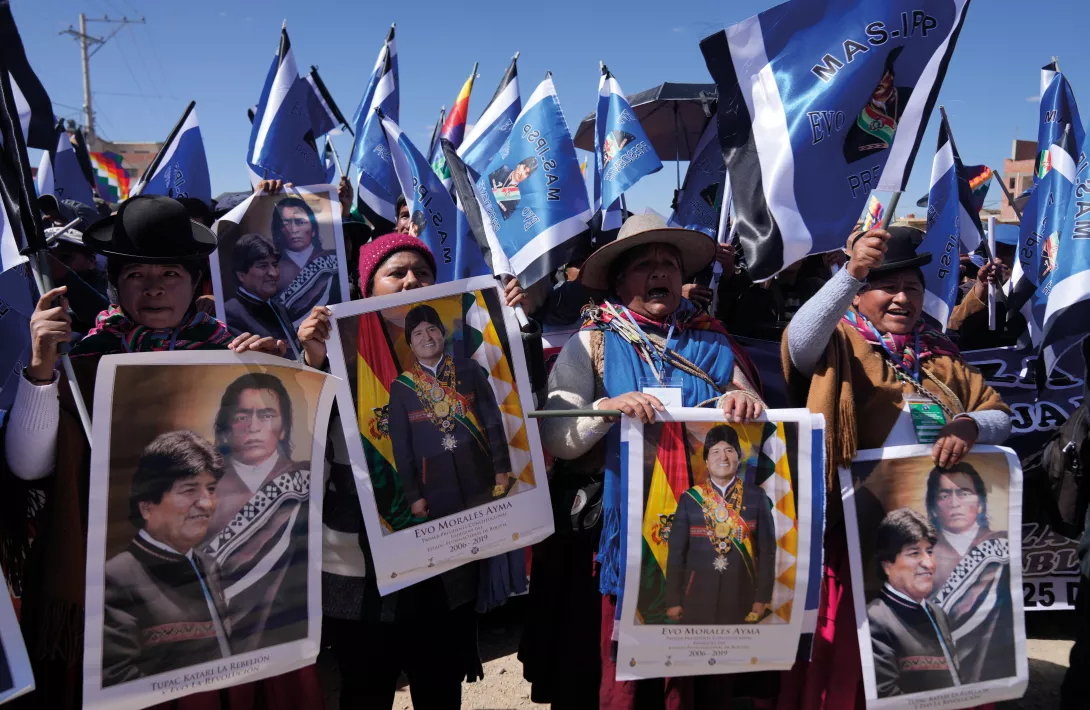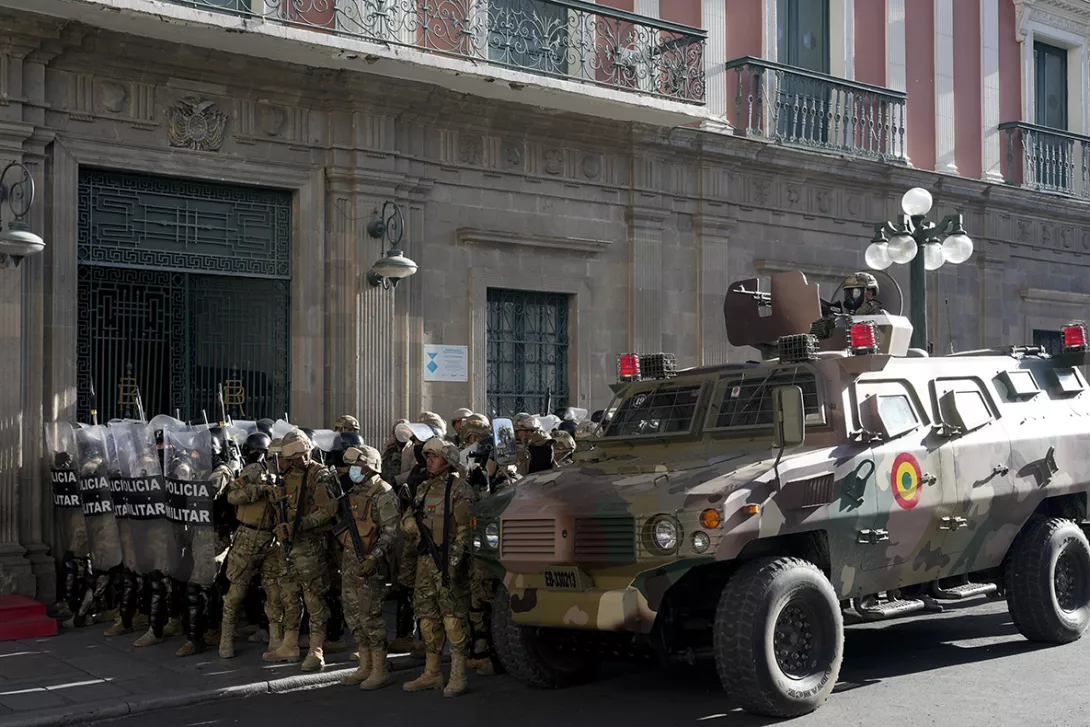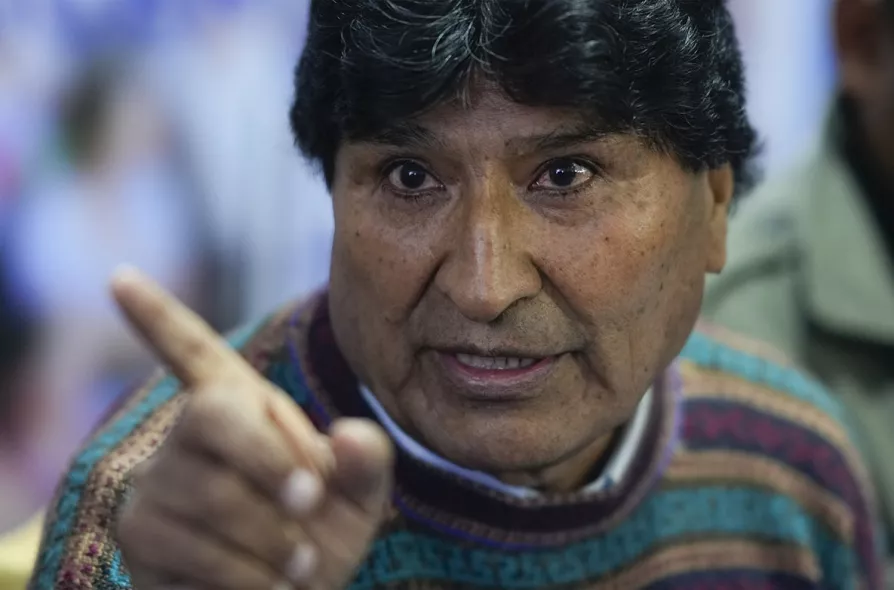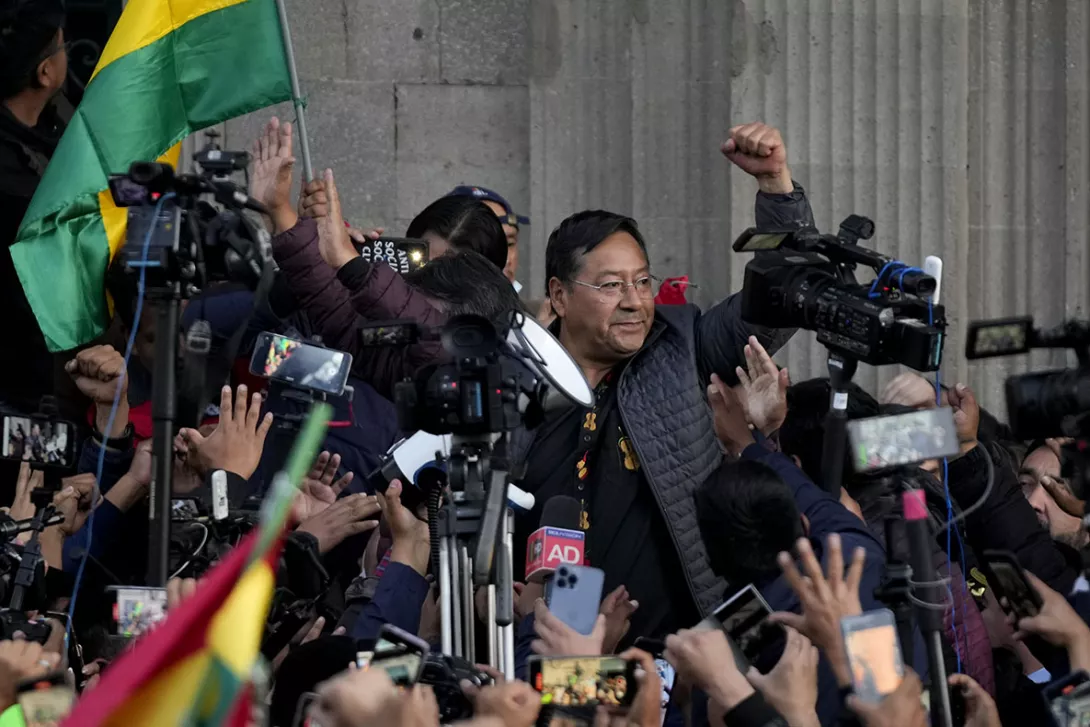The proxy war in Ukraine is heading to a denouement with the US and Russia dividing the spoils while the European powers stand bewildered by events they have been wilfully blind to, says KEVIN OVENDEN
The long road for justice for coup victims in Bolivia
The same right-wing officials who inflicted torture and sexual assault upon the Bolivian people now call for sanctions against the MAS government, writes CINDY FORSTER

“Acts of torture were committed against them — the victims tell us that police as well as soldiers and even foreigners committed these acts.” — Yomar Sanchez, Quechua journalist from Potosi.
JEANINE ANEZ was scheduled to face her first day of trial in February, on accusations of staging a coup in Bolivia in 2019 that plunged the country into an inferno.
Traditional elites at the top of the justice system were among those who engineered the coup. Her trial was postponed.
The grounds for that postponement are troubling — attorneys had apparently miscalculated the required number of days to allow the defence to prepare their arguments.
More from this author

From dubious military interventions to electoral court manoeuvring, Luis Arce’s government faces accusations of undermining democracy, while Evo Morales and his indigenous base fight for political legitimacy, writes CINDY FORSTER
Similar stories

From dubious military interventions to electoral court manoeuvring, Luis Arce’s government faces accusations of undermining democracy, while Evo Morales and his indigenous base fight for political legitimacy, writes CINDY FORSTER

Indigenous rights activist MIRIAM AMANCAY COLQUE gives her thoughts on the dramatic events in La Paz earlier this week which saw a thwarted attempt to overthrow President Arce











